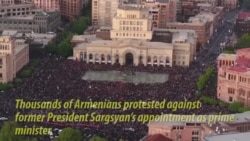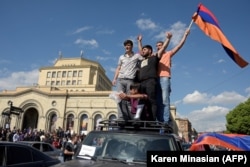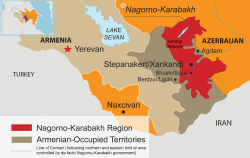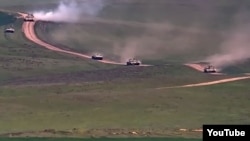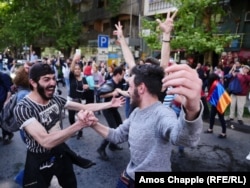Moscow responded to the resignation of Armenia’s Prime Minister Serzh Sargsyan on April 23 with calm certainty, saying the political turmoil in Yerevan will not affect the relations between the two countries. Sargsyan, who previously served as Armenia’s president, stepped down as prime minister amid mass protests.
Leonid Slutsky, chairman of the Foreign Affairs Committee in the State Duma, the lower house of Russia’s parliament, said that the political changes in Armenia will not affect cooperation between the two nations and that Russia will remain Armenia’s closest ally.
Armenia, a Eurasian country half the size of the U.S. state of West Virginia, is surrounded by Turkey, Azerbaijan and Georgia.
Armenia’s alliance with Russia is dictated by a “need to survive,” Serzh Sargsyan said during his May 2015 visit to Washington, DC to commemorate the 100th anniversary of the Armenian genocide.
Armenia is a member of the Russia-led Eurasian Economic Union which was set up as a counterbalance to the European Union. Moscow sells Armenia gas at domestic Russian prices and provides it with financial aid for various educational and cultural programs. Armenia is in the process of “re-engineering” its state finance system with support from the Russian Trust Fund.
Armenia’s foreign trade largely relies on Russia.
Since 1988, Armenia has been involved in an armed conflict with neighboring Azerbaijan over the disputed territory of Nagorno-Karabakh. The conflict led to a near-total blockade of Armenia’s borders: its border with Azerbaijan and its ally Turkey have been completely closed, with only its border with Georgia remaining open.
Russia has assumed the role of international mediator in the conflict over Nagorno-Karabakh. However, at the same time, Moscow sells weapons to both Armenia and Azerbaijan.
Kremlin press secretary Dmitry Peskov said on April 23 that Russia is not interfering in Armenia and that the events are “absolutely Armenia’s domestic affair,” but declined to comment whether Yerevan consulted with Moscow regarding the current situation.
While Peskov’s claim of non-interference seems to be true, other developments suggest it is highly unlikely Russia will stand on sidelines if anything in Armenia goes entirely against Moscow’s interests.
This week, the Armenian Defense Ministry announced it is discussing with Moscow the deployment of Russian military police to the permanent Russian military base in Gyumri, a northeastern city near Armenia’s borders with Turkey. The Armenian Defense Ministry has provided no details about the numbers of Russian military police, saying only that the move is targeted “at maintaining discipline” at the base.
After Sargsyn's resignation, Karen Karapetyan, ex-prime minister and former head of national gas distributing company ArmRosGazprom and later Yerevan mayor, has assumed the office as the acting prime minister.
Karapetyan lived in Moscow, where he served as the first vice-president of Gazprombank and the deputy CEO of Russian gas producer Gazprom’s GAZP.MM Mezhregiongaz unit.
Gazprom is Russia's state-controlled energy giant targeted in the U.S. sanctions.




